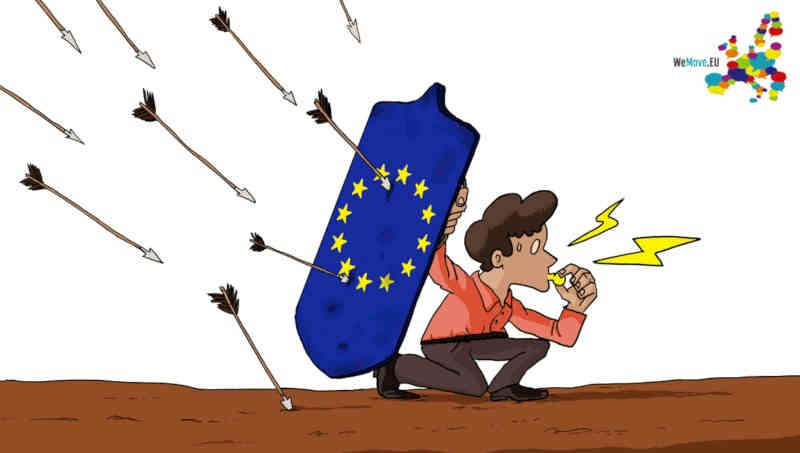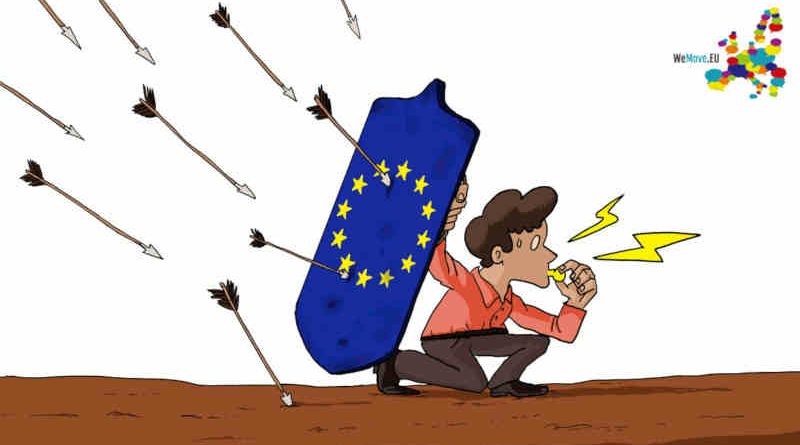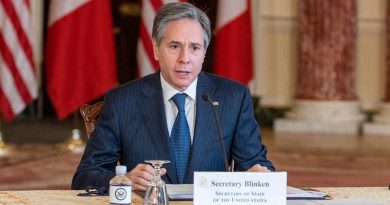New Legislation to Protect Whistleblowers in Europe

The European Parliament and EU Council have agreed to introduce a piece of legislation that will help protect whistleblowers around Europe. The political agreement for the legislation was reached on March 12.
The proposed legislation will give greater protections for individuals who wish to come forward when they encounter corruption or illegality in the workplace and will provide both public and private sector employers with greater legal certainty around their rights and obligations.
“Today is a historic day for those who wish to expose corruption and wrongdoing,” said Nick Aiossa, senior policy officer at Transparency International EU. “Whistleblowers in the EU, like Howard Wilkinson, the Danske Bank whistleblower, have spent far too long facing unjust retaliation for speaking out. It is quite an accomplishment that negotiations between the institutions have come to a positive end.”
[ Women Whistleblowers Campaign Exposes Fraud and Corruption ]
While certain provisions can be strengthened, the draft legislation provides a strong foundation for potential whistleblowers to be protected under EU law. The directive affords much-needed harmonization, as up until now, EU countries have had patchwork of protection for those who wish to expose the truth.
Ireland, for example, already has good laws in place however Member States such as Cyprus have practically none. We await the publication of the preliminary text in order to scrutinize it more closely. However, according to Transparency, one of the most crucial structural issues of the directive was successfully addressed.
[ The Integrity Bulletin Launched to Cover Corruption Issues ]
“We commend the EU in recognizing that whistleblowers should be able to first report wrongdoing to the relevant law enforcement or regulatory authorities,” added Nick Aiossa.
During the negotiations, Transparency reports, petitions demanding that whistleblowers should be granted protection if they reported wrongdoing externally first gathered over a quarter of a million signatures. Over 80 organizations and whistleblowers themselves also sent letters to the institutions to demand a robust directive.
| Download and Read RMN Publications | ||
| TechWise Today | The Integrity Bulletin | Clean Climate |
| Legal Directions | Young Learner | Real Voter |
In the coming weeks and months, both the European Council and European Parliament will have to endorse this preliminary agreement. It will then have to be transposed into national laws in Member States. As this directive only relates to EU competences, Transparency suggests that Member States should use this opportunity to also incorporate national laws in the transposition process.
Transparency International, working with a broad coalition of civil society organizations, trade unions and journalist associations, has been advocating for a comprehensive whistleblower directive for many years.
A whistleblower is a person who takes risk and reveals illegal or unethical practice such as corruption in their own organization.
💛 Support Independent Journalism
If you find RMN News useful, please consider supporting us.




